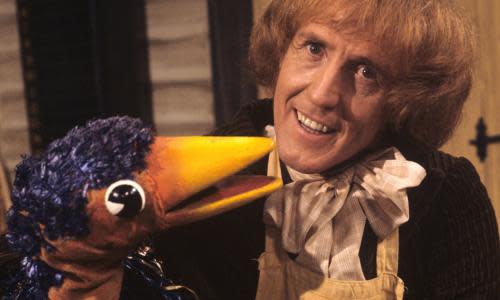Cryptic crosswords for beginners: examples of examples

In the example clues below, I explain the two parts of each one. There is a definition of the answer and there is some wordplay – a recipe for assembling its letters. In a genuine puzzle environment, of course, you also have the crossing letters, which hugely alleviate your solving load. Also, here, the setters’ names tend to link to profiles of the individuals behind the pseudonyms.
When I began solving cryptics, without a series of handy hints like the one you’re reading now, I sometimes wondered: if I take a dictionary and look up what I think is the answer, should I see underneath the part of the clue that I think offers the definition, but perhaps not expect that to work the other way round?
I was right, pretty much. Here’s a recent example from Pasquale in the quiptic, the Guardian’s puzzle “for beginners and those in a hurry”:
11d Bird seen in the museum (3)
[ wordplay: some of the letters of (“seen in”) THEMUSEUM ]
[ definition: bird ]
If we look up EMU in Collins Dictionary, we discover – among such extra details as its number of toes – that the EMU is indeed a bird. The entry for “bird”, though, does not single out the EMU.
And so when Vulcan clues BIRD, he does it like this:
10a Perhaps hawk’s attempt to catch rook (4)
[ wordplay: synonym for “attempt” containing (“to catch”) chess abbreviation for “rook” ]
[ BID containing R ]
[ definition: perhaps hawk ]
By itself, “hawk” would not be helpful, because we’re not looking for a hawk; we’re looking for the sort of thing a hawk is. As such, we’re given a “perhaps”. This is especially useful when a definition would take the fun out of the exercise. Here’s Qaos:
12a Perhaps 2000 or 2020 players struggle to control Real’s midfield (4,5)
[ wordplay: anagram (“struggle”) of PLAYERS containing middle letters of (“midfield”) REAL ]
[ LEAPYRS containing EA ]
[ definition: perhaps 2000 or 2020 ]
If Qaos had used, say, “periods of 366 days”, we’d be writing in LEAP YEARS without any of the pleasure of manipulating PLAYERS and REAL. The setter might also use “say”:
19a Coke and rum originally served in saloon, say (3)
[ wordplay: initial letters of (“originally”) COKE AND RUM ]
[ definition: saloon, say ]
Here, Brendan uses “saloon” as an example of a CAR, but new solvers should be aware that “say” in a clue might also indicate EG (more Latin tips here) – and “eg” in a clue might also mean you’re being given an example of the answer.
The quickest way of doing this job is the question mark. Here’s Vlad with some more birds …
21a Angry report on Dirty Duck? (8)
[ wordplay: synonym for “angry” and soundalike of (“report on”) synonym for “dirty” ]
[ synonym for “angry” and soundalike of “foul” ]
[ definition: duck? ]
… this time WILDFOWL. Newspapers have had various rules on this kind of thing down the years and sometimes an example seems to work as a definition without any embellishments; when it does and does not is the kind of thing that some setters and solvers enjoy discussing at great length.
For now, though, two final things. We’ve looked at examples as definitions, but they can also of course be part of the wordplay, as in this from Picaroon …
10a Checks possibly amber clothing at home (5,2)
[ wordplay: what “amber” is an example of, containing (“clothing”) synonym for “at home” ]
[ RESIN containing IN ]
[ definition: checks ]
… for REINS IN. Finally, the word “say” in a clue unlocks many more possibilities than the two mentioned above. In the Brendan puzzle cited, every clue ends in “[…], say” as a masterclass in the ambiguities to which we all willingly and repeatedly subject ourselves. Enjoy. Seasoned solvers: do you have any favourite examples? Beginners: any questions?
More guidance
Cryptic devices: hidden answers; double definitions; cryptic definitions; soundalikes; initial letters; spoonerisms; containers; reversals; alternate letters; cycling; stuttering; taking most of a word; naked words; first and last letters; middle letters.
Bits and bobs: Roman numerals; Nato alphabet; Greek letters; chemistry; abbreviations for countries; points of the compass; playing cards; capital letters; boys and girls; apostrophes; cricket; alcohol; the church; Latin; royals; newspapers; doctors; drugs; music; animals; cars; cities; rivers; boats; when the setter’s name appears; when the solver appears; “cheating”.
Individual letters: A, B, C, D, E, F, G, H, I, J, K, L, M.
The Shipping Forecast Puzzle Book by Alan Connor, which is partly but not predominantly cryptic, can be obtained from the Guardian Bookshop.

 Yahoo News
Yahoo News 